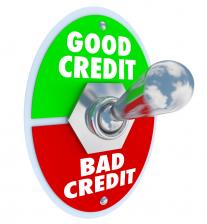Don’t Let Inquiries Lower Your Credit Score
Learn the difference between soft and hard credit inquiries and how they affect your credit score.
Laura Adams, MBA

-
A soft inquiry doesn’t damage your credit score and is likely to occur without you even knowing. It could come from a credit card company that pre-approves you for a card offer, a potential employer, or an insurance company, for instance. Checking your own credit report is also a soft pull that has no affect on your credit rating
-
A hard inquiry can damage your credit score and happens when you actively seek credit by applying for a credit card, a retail store card, or a loan, for instance. Having too many hard pulls within a short timeframe indicates that you could be taking on too much additional credit and flags you as a potential credit risk. Hard inquiries make up about 10% of your credit score—so keep them to a minimum to keep your credit rating as high as possible. However, there is an exception if you’re shopping for the best rates on a specific loan, such as a mortgage. While it’s true that having lots of credit inquiries can decrease your score, the system won’t treat a cluster of credit inquires for one type of loan within this time frame unfavorably. So a good rule of thumb when you’re shopping around is to submit all your loan applications to potential lenders within a two-week period.
To learn more about credit scores, scams, and myths, visit creditscore.com.
And for more Money Girl advice regarding credit scores, check out these episodes and tips:
-
How to Raise Your Credit Score Fast
Good Credit Bad Credit image courtesy of Shutterstock

